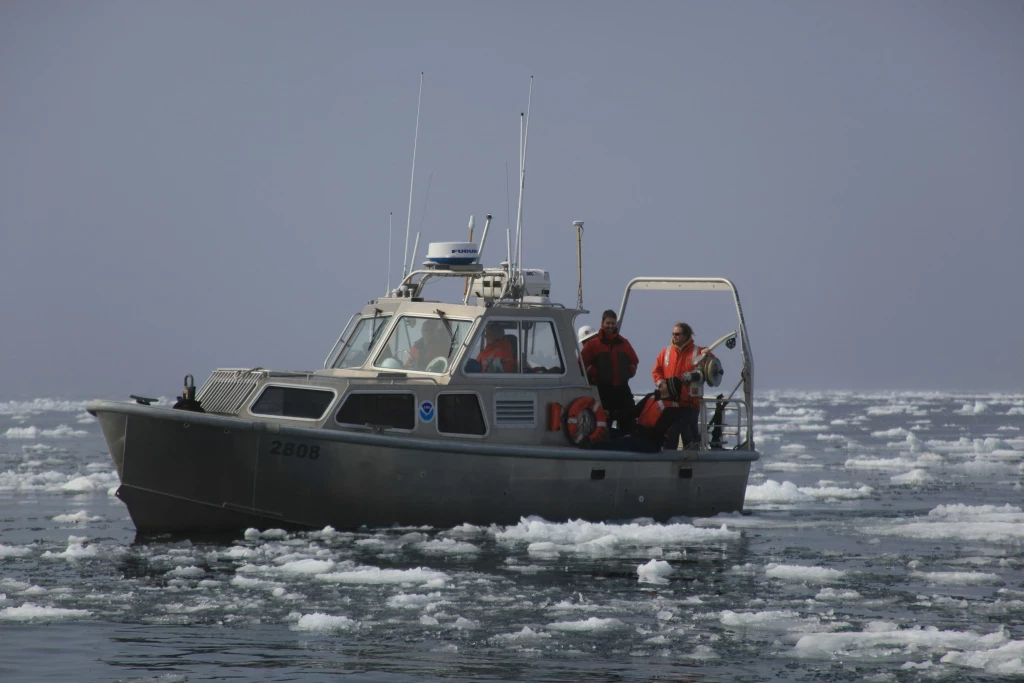First Chinese aircraft carrier sets sail
Add bookmarkChina has launched sea trials on its first aircraft carrier in what some experts say is a show of force as Beijing presses its claim over the entire South China Sea.
The 1,000-foot (300-meter) vessel, refitted from a former Soviet craft bought from Ukraine in 1998, departed through fog from the northern Chinese port of Dalian on Wednesday.
"After returning from the sea trial, the aircraft carrier will continue refit and test work," China's official Xinhua news agency said, pointing out that the ship posed no threat to any country.
"Building a strong navy that is commensurate with China's rising status is a necessary step and an inevitable choice for the country to safeguard its increasingly globalized national interests," it said.
"Even if China developed an aircraft carrier with full combat capacity in the future, it will not pose any threat to other countries," Xinhua said.
Beijing says the ship is intended for research and training, pointing to longer-term plans to build up to three clones of the carrier in China's own shipyards.
The trial deployment of the aircraft carrier comes amid tensions in the region as China becomes increasingly assertive in its claims over the South China Sea, which is believed to hold valuable oil and minerals.
The disputed Spratly and Paracel island chains in the vast sea are claimed in their entirety by China, Taiwan, and Vietnam and in part by the Philippines, Malaysia, and Brunei.
Tensions flared in May when Vietnam said Chinese marine surveillance vessels cut the exploration cables of an oil survey ship.
Sending a 'message'
"The aircraft carrier's maiden trip must have something to do with the recent South China Sea crisis," said Liu Dawen, the editor-in-chief of the magazine "Frontline" in Hong Kong, which is often critical of Beijing.
He said Beijing may want to send a "message" amid the South China Sea tensions, adding that speculations had been rife for weeks over the aircraft carrier's test run.
"The navies of our neighbors such as the Philippines, Malaysia, and even Vietnam are no match to China's and this aircraft carrier will further rattle them," Liu said.
A popular Hong Kong commentator, Tan Zhiqian, said the ship was not aimed for "battle" but to "scare the neighbors and press them to negotiate with you."
"China needs more bargaining chips on their negotiating table," Tan said.
Some Chinese experts, however, defended Beijing's move to own an aircraft carrier, saying it is the only permanent member of the United Nations Security Council that has not developed such vessels and that it has a huge coastline and vast maritime assets to defend.
In the region, India and Thailand already have aircraft carriers, and Australia has ordered two multipurpose carriers. The United States operates 11 carriers.
"China still has a big gap with the U.S. Therefore, the kind of activities we are undertaking are not for the purpose of warfare but rather a learning process—a process from where we had nothing and now have something," Wang Xiaodong, a Chinese writer, told a Hong Kong television station.
"So once we know how to build our own aircraft carrier based on our industrial capacity, we can develop very fast," said Wang, who authored "China Is Not Happy" in 2009 with several other nationalist writers in a bid to arouse national indignation at foreign powers' treatment of China.
Ruslan Pukhov, president of the Moscow Strategy and Technologies Analysis Center, told Xinhua that a single aircraft carrier does not alter the power balance in the region.
"It is a matter of both national pride and security," Pukhov said, adding that the aircraft carrier shows that the Chinese Navy has been developing.
Secretive
China has the largest armed forces in the world and is extremely secretive about its defense programs, which benefit from a huge and expanding military budget boosted by the nation's rapid economic growth.
Earlier this year, China announced military spending would rise 12.7 percent to 601.1 billion yuan (U.S. $91.7 billion) in 2011.
Amid the lack of transparency over China's military objectives, the United States on Wednesday sought an explanation from Beijing over the aircraft carrier.
"We would welcome any kind of explanation that China would like to give for needing this kind of equipment," State Department spokeswoman Victoria Nuland told reporters when asked whether the carrier would raise regional tensions.
"This is part of our larger concern that China is not as transparent as other countries. It's not as transparent as the United States about its military acquisitions, about its military budget," she said.
"And we'd like to have the kind of open, transparent relationship in military-to-military affairs," Nuland said.
Reported by Qiao Long for RFA's Mandarin service. Translation by Jia Yuan. Written in English by Parameswaran Ponnudurai.
Copyright © 1998-2011 Radio Free Asia. All rights reserved.






















